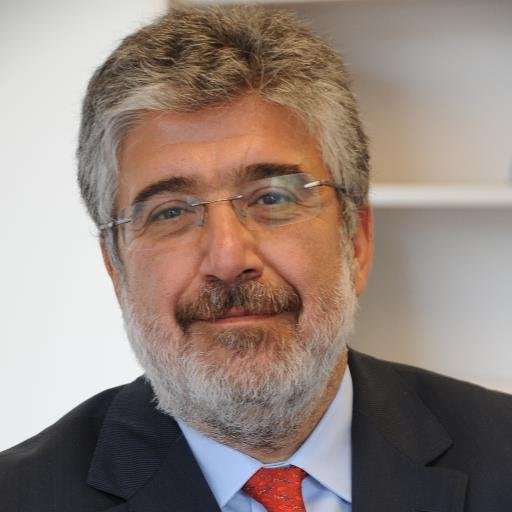
The LinkedIn page of José Juan Ruiz, the IDB’s chief economist, shows not a photo of himself but a drawing by the iconic Spanish cartoonist Andrés Rábago, alias El Roto, depicting an exhausted traveler and emigrant draped over his suitcase, deep in sleep. “The dreams of a nation produce exiles,” says the caption over the weary man.
It is a fitting observation for Ruiz, a Spanish citizen, who has long been an exile himself, and whose many travels, especially to Latin America and the Caribbean, have taught him a thing or two about the dangers of national dreams and fantasies. It also marks the beginning of a revealing interview with Ruiz in this week’s edition of the Spanish business magazine Actualidad Económica.
Ruiz tells the story of politicians who promise 50 years of progress in five only to discover on their sixth year in office that they have gone backwards by four. It is a theme that Ruiz returns to again and again in the interview in which he warns of populists proposing magical solutions, not just in Latin America and the Caribbean, but everywhere. “People think populism happens only in Macondo, where it rains for four years, 11 months and two days and it’s all yellow butterflies,” he says referencing Gabriel García Márquez’s “One Hundred Years of Solitude.” But people have similar reactions to difficult circumstances and “culture is a very thin layer.”
Ruiz grew up in the isolated rural town of Tarancón, where he worked helping his father in the family’s food and wine business. At 15, he moved to Madrid to enroll at a public boarding school and went on to study economics at the Autonomous University of Madrid, determined to escape small town life and become a civil servant. He entered government in 1983 shortly after the election of Felipe González as president and eventually rose to become undersecretary of international economy and competition, while helping make the adjustments needed for Spain to enter the European Union. He later worked as chief economist at the bank Argentaria and then as director of strategy and chief economist in the Latin American division of Banco Santander, travelling every other week to a different country in the region during 16 years. It is from that long experience and his four years at the IDB that he reflects on the region’s progress and challenges as he walks the streets of Madrid with the journalist from Actualidad Económica.
He is upbeat about Latin America and the Caribbean. Health and education have improved. Poverty rates from 2000-2013 have declined from 46% to 28%, and a growing middle class is making itself felt ever more both in its purchasing power and insistence on democratic government. The cliché of Latin nations, tolerant of caudillos who monopolize and perpetuate themselves in power, is a thing of the past, he says.
Meanwhile, the emergence of a highly trained class of businessmen and technocrats, often with doctorates from Europe and the United States, is transforming economic policymaking. If the 80s was a lost decade, the region’s governments have learned a lot about keeping inflation in check and not relying on deficit spending during hard times without first generating surpluses during good ones. Better planning and, in some places, somewhat more diversified economies is leading to greater stability, he says.
Nonetheless, Ruiz laments, the region as a whole still relies far too much on its commodities, while overly protecting its domestic market and failing to open up to the world. As a result, it is terribly vulnerable to external shocks. Latin America’s economic cycles, unfortunately, largely depend on world growth, the price of commodities, and the US Federal Reserve. Integration with the world, as well as regionally, could make a big difference in that regard, he says. So could higher quality state institutions, capable of diagnosing market failures, solving problems and evaluating solutions to determine whether they work.
One of the most dramatic moments of the interview occurs as Ruiz and the journalist stumble upon a protest by taxi drivers against the authorization of Uber to operate in Spain, which ends in hurled insults and near violence against a “scab” who refuses to join in. It is a moment of extreme tension, but also one that leads to philosophical reflection about a world in which anger at inept and corrupt elites is brewing. Ruiz warns again that populist politicians are on the rise, with echoes of dangerous moments in European and Latin American history. He reiterates that he doesn’t believe in populists, shortcuts or fantastical solutions. The only solutions lie in solid institutions and creating consensus so exiles don’t end up far from home, sleeping on their suitcases by the side of the road.
View the published interview in its entirety here.


Leave a Reply